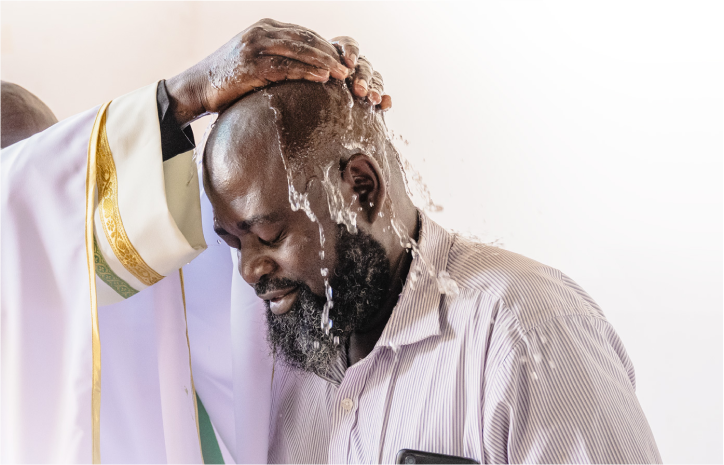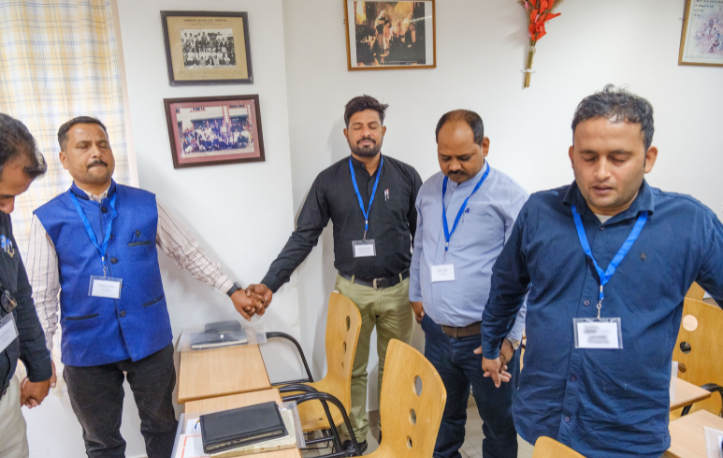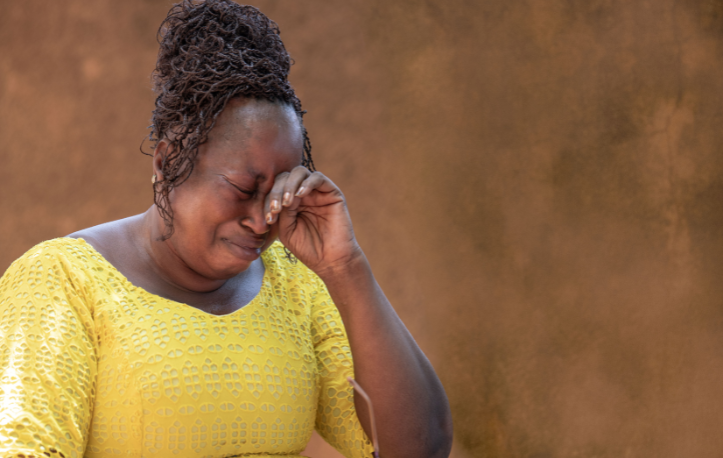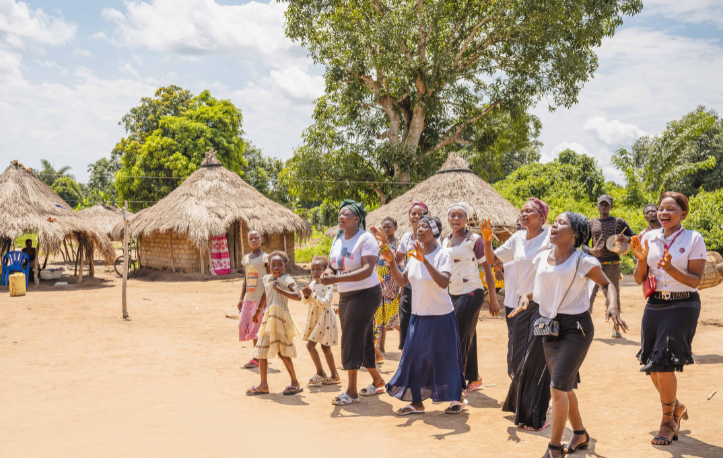On a hot summer afternoon in July 2023, Wesley Saliboko stood at the front of a church in Kasese, Uganda, with his four daughters.
As the small congregation watched expectantly, Wesley stepped towards a group of local ministers, who laid hands on him and prayed just before he was baptised. With the water still flowing down his face, Wesley raised his hands in worship, his smile reflecting a joy born of God’s grace and the sorrow of death.
Just one month earlier, Wesley had been a Muslim extremist. Often referred to as el-Hadji, an honorific title given to Muslims who complete a pilgrimage to Mecca, he had been an imam in two mosques and served as chairman of his local mosque, overseeing its business and financial affairs for decades. He also actively participated in jihad.
“We said we are holier than Christians and we are fighting a jihad, fighting Christians and killing people,” he said. “In Islam, they hate those who are not Muslim; they call them paganists. When we kill Christians, we say we are killing paganists, and if we kill a pagan in the name of Allah, we are going to heaven.”
Over the years, Wesley became disillusioned with Islam. Though he had grown up in a Muslim family, one of his grandfathers had converted to Christianity. Wesley remembered his grandfather’s stories about Jesus Christ and God’s love, which differed greatly from the violent version of Islam he knew. In his heart, he felt that jihad was wrong. “The Christian does not fight jihad,” he said. “They don’t kill each other, and they don’t kill others. My heart would remain with sorrow after making a jihad. I did not want to live with this sorrow in my heart.”
As Wesley wrestled with his faith, tragedy struck his family.
On 16 June 2023, members of the Allied Democratic Forces (ADF), an Islamist group affiliated with the self-proclaimed Islamic State (ISIS), crossed into Uganda from the Democratic Republic of the Congo (DRC) and attacked the Lhubiriha Secondary School in Mpondwe, Kasese district.
The ADF formed in western Uganda in the 1990s but operates primarily in northeastern DRC today. It has openly stated its intent to eradicate Christians from the region as it strives to establish Islamic law.
During the attack, armed militants stormed the school, killing students with machetes before bombing one of the dormitories and setting fire to other buildings where children had taken shelter. The Islamists killed thirty-seven students, four community members and one security guard, while abducting six other students.
Among the students killed in the attack was Wesley’s 15-year-old niece, Amina. She and her mother had left Islam to follow Christ just a year earlier, and Wesley’s brother had chased them from their home. Their local church had then provided for their needs and paid for Amina’s schooling at Lhubiriha. After the attack, Amina’s body was discovered in the forest on the DRC side of the border.
Already questioning his Islamic faith, Wesley was struck by the contrast between Muslim and Christian responses to the school attack. He had always responded faithfully when mosque leadership needed his help, but now, no one from the local Muslim community offered condolences to their family or apologised for the extremists’ actions.
Conversely, Wesley was deeply moved by the way the Christian community cared for his niece’s body and gave her a proper burial. “I was impressed by the love and support the Christians showed,” he said.
When the minister boldly proclaimed the gospel at Amina’s funeral, Wesley placed his faith in Christ. In the days after Wesley became a Christian, he began to share the gospel with his family. He first led his wife and eight children to know Christ, and then Amina’s father called him on the phone to explain that he, too, wanted to follow Jesus Christ.
Still, leaving Islam has not been easy for Wesley and his family. In Uganda, Christian converts face severe harassment in Muslim communities; some have even been killed. Because of his former leadership in the Muslim community, Wesley has received death threats, forcing him and his family to go into hiding. Only four of his children attended his baptism because it was too dangerous for the whole family to be together in public.
After Wesley’s baptism, his daughters removed their traditional Muslim hijabs and received baptism themselves, publicly proclaiming their commitment to follow Christ. The remaining children were baptised with their mother, the following Sunday.
Today, Wesley rejoices in his newfound freedom. “I have cast all of that [Islamic extremism] off to follow Jesus Christ,” he said. “I have received Jesus Christ and I want to serve Jesus Christ.”
With encouragement and practical help from the global body of Christ, Wesley and his family are growing in faith. He requests prayer for God’s protection as he shares his faith with radical Muslims, including members of his own family. Two of his brothers are currently in prison for extremist activities.
“I want God to lead me with safety so I can do the will of God,” he said.




Submit a Prayer